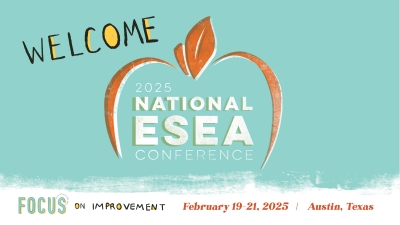

The Supporting Students in Poverty with High-Impact Instructional Strategies Toolkit provides teachers and administrators with evidence-based strategies and instructional actions to decrease the negative impacts of poverty on student achievement. The toolkit identifies five high-impact instructional strategies that K-12 teachers can implement and provides supportive research, guidance, tips, and resources. The toolkit also includes actions principals, district, and state leaders can take to support educators in mitigating the impact of poverty on student achievement. This toolkit is designed to support: Educators in high-poverty, low-performing schools or who are new to the profession This no-cost resource is ideal for PLCs, personalized support following observations, or other PD training. In this workshop, educators will explore the child poverty landscape and toolkit resources, and identify approaches to use this resource to better support students in poverty.

Jennifer Ishee is currently serving as the Curriculum Specialist for Taylorsville Attendance Center in rural Smith County Mississippi. She has spent most of her career working with children in grades 7 and 8 in the areas of ELA and Gifted Education. While teaching middle school English, Jennifer’s students ranged from accelerated learners to English Language Learners with a significant language barrier and from all levels of socioeconomic status. She first heard of the Toolkit while attending a conference for school improvement in Starkville, MS. She knew she could take the lessons back to Taylorsville and implement them immediately.
• Teacher in former National Distinguished Title I School for Jackson Public School District, Walton Elementary School (2014) who assisted in improving from low performance to attaining the highest designation on the state’s accountability system.
• Obtained the highest GMAS scores in Atlanta Public School District in ELA- 5th Grade and named Teacher of the Year (2017) where majority of students were English-Language Learners.
• Enhanced the Multi-Tiered Support Systems (MTSS) with fidelity at Jefferson County Upper Elementary School (2022), in which I served as the ELA Interventionist.
• Provided support in assisting Jefferson County School District (2022) to improve from a low-performance district to increasing two-letter grades on the accountability system from F to C.
Former National Distinguished Elementary Principal for Mississippi (2004) who led a school-wide Title I elementary school in Meridian, MS from low performance to the highest designation on the state’s accountability system. Provided oversight for ESEA, School Improvement (1003a and 1003g), Special Populations, and student support programs at the district level for 5 years. Provided oversight for ESEA, School Improvement (1003a and 1003g) and IDEA programs at the state level for approximately 10 years. Served as Deputy State Superintendent of Education in MS for approximately 8 years, with oversight for PK-12 Curriculum and Instruction; Compulsory Attendance; Alternative Education; State initiatives including MTSS, Early Childhood, Literacy, CCR Standards, CTE, Computer Science, Professional Development, Graduation Requirements, and High-Quality Instructional Materials. Project Lead and Co-author: Benton, K., Permenter, P., Richel, M., Sheley, P., Hartman, N., Layland, A. (2022). Supporting Students in Poverty with High Impact Instructional Strategies. Rockville, MD: National Comprehensive Center at Westat. Co-Author: Manian, N., McColskey, W., Benton, K., & Lipshie, N. (2021). Implementing Trauma-Informed Practices in Rural Schools. Rockville, MD: National Comprehensive Center at Westat. Benton, K., Butterfield, K., Manian, N., Molina, M., Richel, M. (2020). Returning to School Toolkit for Principals. Rockville, MD: National Comprehensive Center at Westat.






